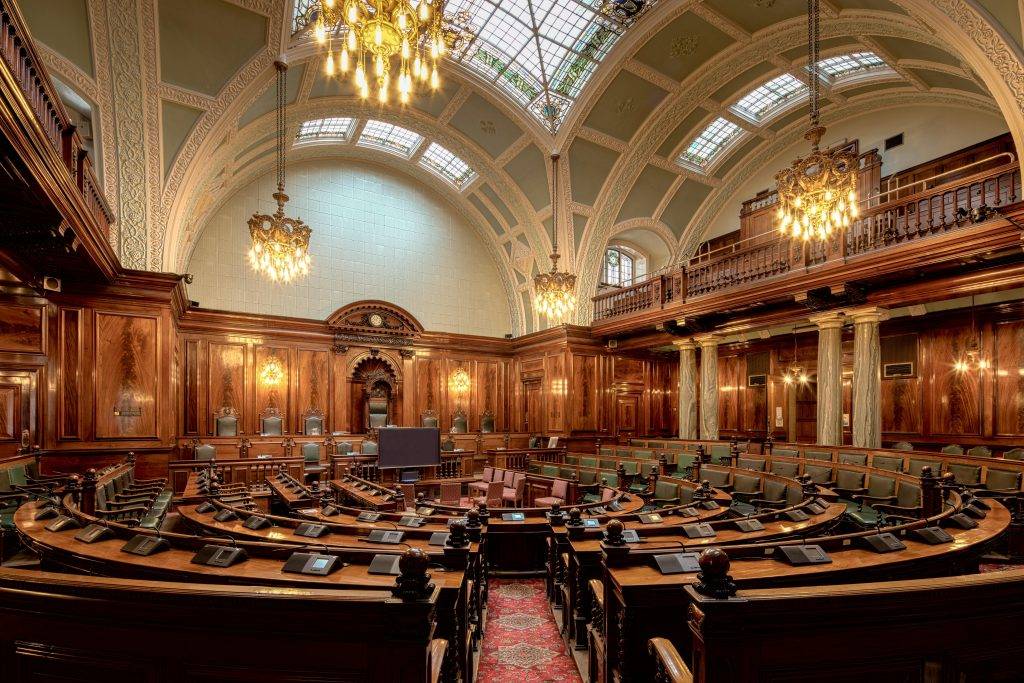What is a Variance? A Homeowner’s Guide to Property Rules and Exceptions
If you’ve ever explored buying land or building a home in Macon, Georgia, you may have come across the term “variance” in zoning and property discussions. At first glance, it can sound technical or even intimidating, but it’s actually a straightforward concept once broken down. Put simply, a variance is an official exception to a local zoning rule that allows a property owner to use their land in a way that would normally not be permitted.
Understanding variances is important for homeowners, buyers, and investors because they can directly affect what you’re allowed to build, how you can expand your home, or even how you can use your property. In this blog, we’ll break down what a variance is, why it matters, the types of variances available, the process of obtaining one in Macon and Bibb County, and how it may impact your real estate decisions.
Zoning Basics: The Foundation of Variances
Before diving into variances, it’s important to understand zoning. Every city, including Macon, has zoning regulations that dictate how land can be used. Zoning laws cover things like:
What type of structures can be built in certain areas (residential, commercial, industrial, agricultural).
How tall a building can be.
How far a home must be set back from the property line.
The minimum size of a lot or maximum density allowed.
Parking, landscaping, and signage rules for businesses.
These rules are designed to keep neighborhoods safe, organized, and consistent. For example, zoning prevents a factory from opening in the middle of a quiet residential street or ensures homes aren’t built too close together without proper spacing.
But what happens if a property owner has a unique situation where following the exact zoning rules would create unnecessary hardship? That’s where a variance comes in.
What Exactly is a Variance?
A variance is special permission from the local government that allows a property owner to deviate from certain zoning requirements. It doesn’t change the zoning of the property itself, and it doesn’t allow a completely different type of use. Instead, it provides relief when strict enforcement of the rules would be unfair or impractical.
For example, let’s say you buy a piece of land in Macon where the zoning code requires homes to be set back 25 feet from the street. If your lot is unusually shaped or smaller than average, it might be impossible to build a reasonably sized home while meeting that requirement. In such a case, you could apply for a variance to reduce the setback distance, perhaps to 15 feet, so that you can still build on your property.
In short:
Zoning = the general rule
Variance = the exception
Types of Variances
There are two main types of variances property owners in Georgia may encounter:
1. Area (or Dimensional) Variance
This is the most common type of variance. It deals with the physical requirements of a property, such as:
Lot size and width
Building height
Setback requirements
Percentage of the lot covered by buildings
Example: A homeowner wants to add a garage that would extend five feet into the side yard setback. An area variance would allow this construction if approved.
2. Use Variance
This type of variance is less common and harder to obtain because it involves using the property in a way not normally allowed under the zoning code.
Example: A property is zoned for residential use, but the owner wants to run a small professional office from the home. They would need a use variance to operate legally.
In Macon and many other areas, use variances face stricter scrutiny because they can significantly impact surrounding properties and the character of a neighborhood.
How Do You Get a Variance in Macon?
Obtaining a variance isn’t as simple as asking for permission—it’s a legal process overseen by local zoning authorities. Here’s what that typically looks like in Macon-Bibb County:
Application: The property owner submits a variance request with supporting documents, such as site plans and reasons for the request.
Review: Planning staff reviews the application to ensure it’s complete and to make recommendations.
Public Hearing: Neighbors and community members are notified and given the opportunity to voice support or concerns.
Decision: The Zoning Board of Appeals or a similar authority votes to approve or deny the variance.
When deciding, the board considers factors like:
Is there a genuine hardship that makes strict compliance unreasonable?
Will granting the variance harm neighboring properties?
Is the request consistent with the overall goals of the zoning ordinance?
Common Reasons People Seek Variances
Property owners in Macon and across Georgia request variances for a variety of practical reasons, including:
Oddly Shaped Lots: When unique property dimensions make it difficult to meet setback or size requirements.
Topography Challenges: Hills, slopes, or waterways on the land may limit where structures can be built.
Historic Properties: Older homes built before current zoning codes may need flexibility for renovations or additions.
Small Business Needs: Homeowners or investors seeking limited commercial use in otherwise residential zones.
Why Variances Matter in Real Estate
For homebuyers, investors, and even sellers, variances can be game-changers. Here’s why:
Property Value: Being able to expand a home or add features through a variance can increase property value.
Flexibility: A variance can open doors for creative use of challenging lots that others may have overlooked.
Deal Breakers: Sometimes, discovering that a variance is needed (and not guaranteed) can make or break a purchase decision.
Resale Considerations: Future buyers may appreciate the benefits of an approved variance, or they may be cautious if a denied variance limits property potential.
Variances vs. Zoning Changes
It’s easy to confuse variances with zoning changes, but they are not the same.
Variance: A limited exception for one property based on unique circumstances.
Zoning Change (Rezoning): A formal change to the zoning classification of a property, often allowing completely different uses.
Think of a variance as bending the rule slightly, while rezoning is rewriting the rule altogether.
Final Thoughts: Should You Consider a Variance?
For property owners in Macon, a variance can be an invaluable tool. It provides flexibility without undermining the purpose of zoning laws. If you’re thinking of building, renovating, or buying a property that doesn’t quite fit the mold, understanding variances could save you time, money, and frustration.
That said, the process can be complex. Success often depends on how well you present your case and demonstrate that your situation truly warrants an exception. Working with local experts, such as zoning attorneys, architects, or experienced real estate professionals like JoJo Jones, can make a big difference in navigating the process smoothly.
Whether you’re a first-time buyer or a seasoned investor, knowing the ins and outs of variances will give you confidence as you explore your real estate opportunities in Macon.





